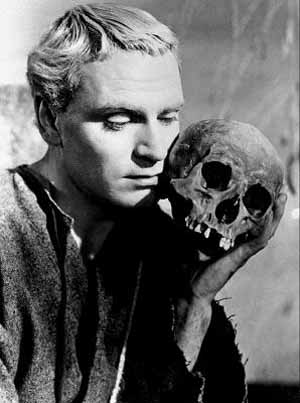Gertrude: Oh Hamlet, thou hast cleft my heart in twain.

I would be interested to see what Gertrude would have to say in a soliloquy. Did she have an inkling about her husbands murder? Is she a victim of circumstance? Or, has she learned through years of experience how survive in a man's world? By marrying Claudius, she bonds herself to a powerful political ally and prevents herself from becoming superfluous. If, for example, Claudius were to marry someone else and produce an heir, what do you think would happen to her and her son? By joining hands with her husband's brother, she secures the succession for Hamlet and retains all the power she formerly enjoyed with Hamlet Senior. Katharine of Aragon did much the same thing when she married her husband's brother, Henry VIII (too bad for her, she still ended up as a cast-off). When you think about it, her only other option would've been to help Hamlet seize the throne, an endeavor which I doubt he would've been prepared for before the events of the play. Gertrude is not stupid; she knows what's up, even if she doesn't always let on that she does. She penetrates straight to the cause of Hamlet's distemper ("I doubt it is no other but the main, His father's death and our o'erhasty marriage.") and her final gesture in Act V of intercepting the poisoned goblet could be construed as intentional. She seems to feign ignorance of the violence and intrigue in Elsinore, perhaps because the less she knows the safer she'll be. When Hamlet confronts Gertrude in her bedchamber, he forces to her to face her own sins ("Come, come, and sit you down, you shall not budge; You go not till I set you up a glass Where you may see the inmost part of you."). Her reaction to his subsequent tirade shows that she would rather pretend everything is okay than accept the truth: that every night she spends between Claudius' sheets, she is accessory to her own husband's murder.


No comments:
Post a Comment